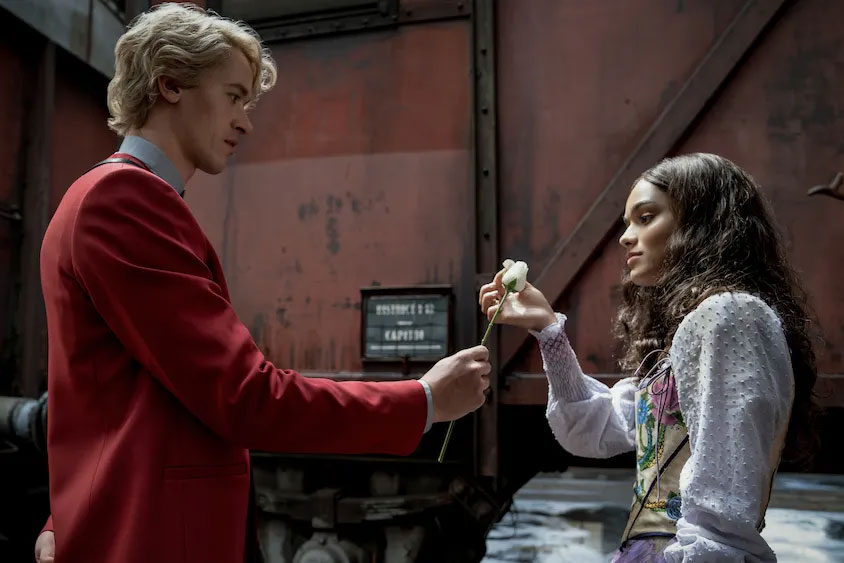“It is the things we love most that destroy us.”
These words are uttered by tyrannical president Coriolanus Snow in the 2014 movie “The Hunger Games: Mockingjay – Part 1,” in which President Snow is an octogenarian played by Donald Sutherland. They are also the final words spoken in the new prequel film, “The Ballad of Songbirds and Snakes” in which we get Snow’s surprising backstory, learning that he was once a handsome young man who was chillingly dispassionate, cunning and had a growling stomach.
By making the future villain the new film’s youthful protagonist, “The Ballad of Songbirds and Snakes” brings new moral complexity to the Hunger Games franchise and serves as the introduction to a talented and charismatic new Hollywood star.
Although in the “Songbirds and Snakes” book, Coriolanus is portrayed as a conniving narcissist from the very beginning, relative newcomer Tom Blyth brings elements of likeability, charm and even a certain insecurity to the character, which adds complexity to Snow’s evil, and makes the new film an entertaining journey.
Coriolanus is assigned to mentor one of the tributes in the film, a young girl named Lucy Gray Baird (Rachel Zegler). We first see Lucy Gray trudging through a crowd toward the front stage at the annual “reaping,” an event where two young tributes are randomly selected to represent their district in the Hunger Games. She’s wearing an eccentric dress and singing quietly to herself as she approaches the stage — and when she arrives, she breaks into song at full volume, singing “You can’t take my charm, you can’t take my humor, you can’t take my wealth, ’cause it’s just a rumor.”
Known for her performance in 2021’s “West Side Story,” it’s no secret that Rachel Zegler’s voice could shake an auditorium, and her singing in the film does not disappoint. While Lucy Gray’s quirky character is tough to pull off without becoming unbearable, Ms. Zegler brings charm and a distinct depth to her depiction.
While both main actors gave remarkable performances, the movie leaves something to be desired when it comes to the other characters. While I was looking forward to actor Peter Dinklage’s performance as Casca Highbottom — the unintentional creator of the Hunger Games — I was disappointed, not by Dinklage’s acting so much as the character itself. Highbottom is cliché and underdeveloped, a depressed drug addict who regrets his past and projects it onto the young people in his life. Similarly, while Viola Davis gives a strong performance as Head Gamemaker Dr. Volumnia Gaul, her malevolent demeanor becomes boring after a few scenes, and it never changes or develops at all.
Not often do I finish a movie and think, “That should’ve been a two-parter.” However, the single film is split into three acts, each of which at times feels crammed with plot points, especially the third. It never gives the events and ideas enough time to fully click, which can leave you feeling like you’re being hurried through a story that’s meant to be taken slow — even though the runtime is a somewhat exhausting 2 hours and 38 minutes. That’s a long time to sit and somehow still feel rushed.
While “The Ballad of Songbirds and Snakes” could have had steadier storytelling and a few better-developed characters, it’s successful in what it tries to do. You leave the theater having learned lots of new “Hunger Games” lore, and somehow feeling something like an affinity for one of the most hated characters in the world of dystopian literature.





















































